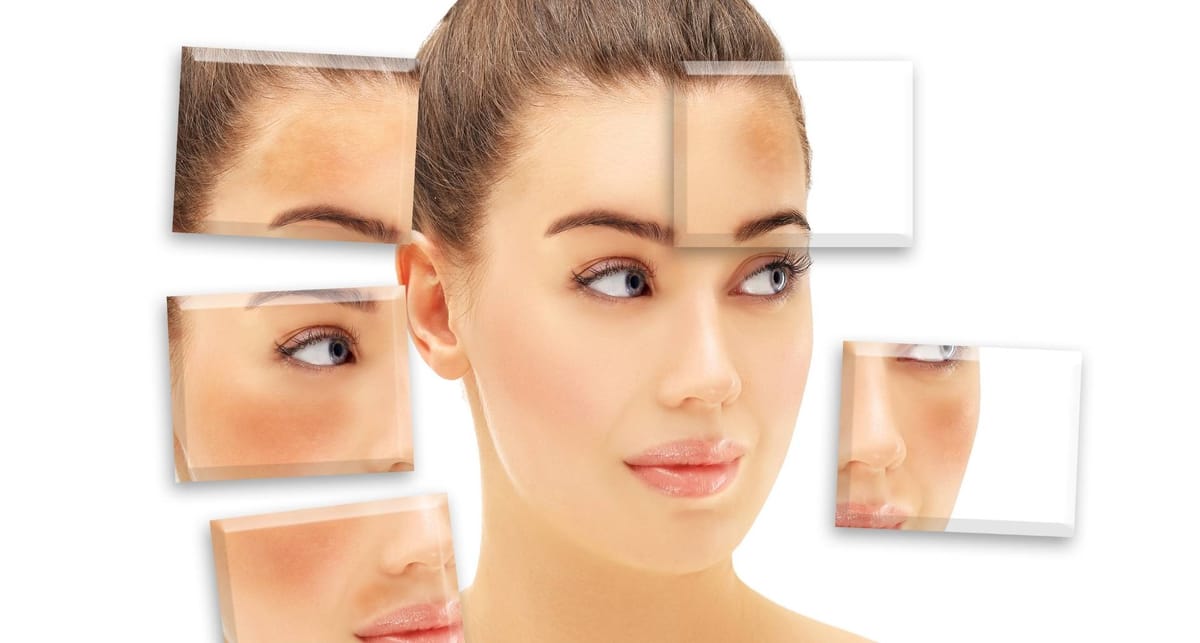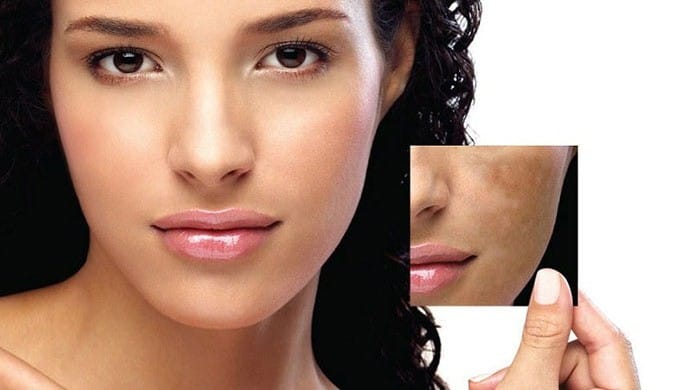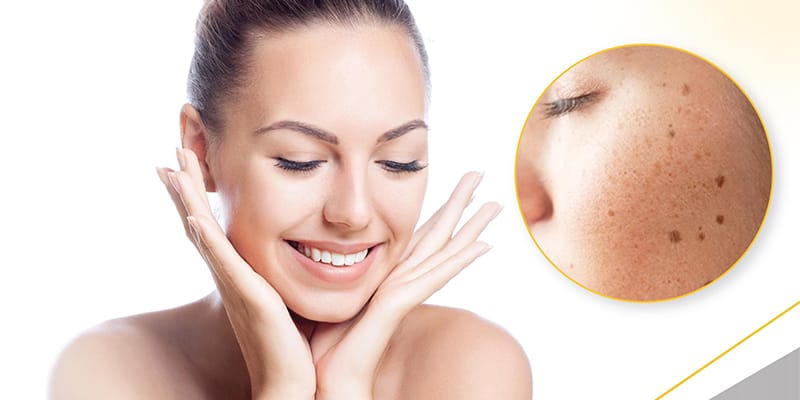Skin Hyperpigmentation Treatment: Top 8 Organic Remedies!
Blemish Banisher: Navigating Skin Hyperpigmentation Treatment. Discover a Holistic Approach, Unveiling Home Remedies, Specialized Skincare, and Lifestyle Options that Illuminate and Address Uneven Skin Tone. Embrace Your Journey to a Luminous Complexion. 🌟🌼

Skin hyperpigmentation can be a pesky issue, impacting your confidence and overall skin health. Many individuals seek effective treatments to combat this concern. While chemical solutions are widely available, they often come with drawbacks and potential side effects. In this article, we explore the world of organic remedies for treating skin hyperpigmentation, offering natural alternatives that not only address the issue but also promote overall skin well-being.
Understanding Skin Hyperpigmentation
Skin hyperpigmentation is a prevalent skin concern characterized by the darkening of certain areas, leading to uneven skin tone. It can be triggered by various factors, such as prolonged sun exposure, hormonal changes, inflammation, or injury to the skin. Understanding the different types and causes of hyperpigmentation is crucial for devising effective treatment strategies.
Causes and Types of Hyperpigmentation
Hyperpigmentation can occur due to an overproduction of melanin, the pigment responsible for skin color. Common causes include:
- Sun Exposure: Prolonged exposure to ultraviolet (UV) rays stimulates melanin production, resulting in dark spots.
- Hormonal Changes: Pregnancy, contraceptives, or hormonal fluctuations can lead to an increase in melanin, causing pigmentation.
- Inflammation and Injury: Skin trauma or inflammation, like acne or wounds, can trigger melanin production as part of the skin's healing process.
Understanding these causes helps individuals adopt targeted approaches to address their specific type of hyperpigmentation.
Impact on Overall Skin Health
Beyond aesthetic concerns, hyperpigmentation can impact overall skin health. Uneven skin tone may indicate underlying issues, such as inflammation or sensitivity. Addressing hyperpigmentation not only enhances the appearance of the skin but also promotes its health and resilience.

Top 7 Organic Remedies for Treating Hyperpigmentation
1. Lemon Juice
Lemon juice is a popular natural remedy for hyperpigmentation due to its high citric acid content. Citric acid acts as a natural bleaching agent, helping to lighten dark spots and even out skin tone. To use lemon juice, dilute it with water or aloe vera gel and apply it to the affected areas. Leave it on for a few minutes before rinsing off with lukewarm water. Repeat daily for optimal results.
2. Turmeric
Turmeric, with its potent anti-inflammatory properties, can help reduce hyperpigmentation and brighten the skin. Create a paste by mixing turmeric powder with water or yogurt and apply it to the affected areas. Leave it on for 15-20 minutes before rinsing off. Be cautious as turmeric can stain clothing and skin, so ensure thorough rinsing.
3. Aloe Vera
Aloe vera is well-known for its soothing and healing properties, making it an excellent remedy for hyperpigmentation. Apply fresh aloe vera gel directly to the affected areas and leave it on overnight. Aloe vera not only helps lighten dark spots but also promotes skin regeneration and repair.
4. Licorice Root Extract
Licorice root extract contains compounds that inhibit melanin production, making it an effective ingredient for treating hyperpigmentation. Look for skincare products containing licorice root extract or make a DIY mask by mixing licorice root powder with honey or aloe vera gel. Apply the mask to the skin and leave it on for 15-20 minutes before rinsing off.
5. Bearberry Extract
Bearberry extract contains arbutin, a natural skin-lightening agent that can help reduce the appearance of hyperpigmentation. Incorporate skincare products containing bearberry extract into your routine or consult a dermatologist for personalised recommendations.
6. Green Tea
Green tea is rich in antioxidants, which can help combat oxidative stress and lighten dark spots. Brew a cup of green tea and allow it to cool before applying it to the skin using a cotton ball. Alternatively, look for skincare products containing green tea extract for added benefits.
7. Vitamin C Serum
Vitamin C is renowned for its skin-brightening properties and ability to inhibit melanin production. Incorporate a vitamin C serum into your skincare routine to target hyperpigmentation effectively. Apply a few drops of the serum to clean, dry skin and follow up with moisturiser.
These organic remedies offer a natural and holistic approach to treating hyperpigmentation, promoting healthier and more radiant skin without harsh chemicals or side effects. Consistency and patience are key when using natural remedies, as it may take time to see significant results. Additionally, remember to practice sun protection and maintain a healthy skincare routine for long-term skin health and vitality.
Nourishing Your Skin from the Inside Out
Achieving radiant and healthy skin goes beyond external treatments; it involves nourishing your skin from the inside out. A well-balanced diet rich in essential nutrients can significantly impact your skin's appearance and overall health.
The Impact of Diet on Skin Health
- Antioxidant-Rich Foods: Incorporate fruits and vegetables with high antioxidant content into your diet. Berries, leafy greens, and citrus fruits help combat oxidative stress, preventing premature ageing and promoting a radiant complexion.
- Omega-3 Fatty Acids: Foods rich in omega-3 fatty acids, such as fatty fish, flaxseeds, and walnuts, contribute to skin hydration and elasticity. These fatty acids also possess anti-inflammatory properties, reducing skin redness and irritation.
- Hydration: Drinking an adequate amount of water is essential for maintaining skin hydration. Proper hydration supports the skin's natural functions, helping it look plump and vibrant.
- Vitamins and Minerals: Ensure your diet includes a variety of vitamins and minerals crucial for skin health, such as vitamin A, vitamin C, vitamin E, and zinc. These nutrients play roles in collagen production, wound healing, and protection against environmental damage.
Foods That Promote Even Skin Tone
- Tomatoes: Rich in lycopene, tomatoes contribute to skin protection against UV damage, promoting an even skin tone.
- Sweet Potatoes: Loaded with beta-carotene, sweet potatoes support skin cell turnover and contribute to a healthy glow.
- Avocado: Packed with healthy fats and vitamin E, avocados nourish the skin, keeping it supple and moisturized.
- Nuts and Seeds: Almonds, sunflower seeds, and pumpkin seeds provide essential nutrients like vitamin E, selenium, and zinc, contributing to skin health.
Lifestyle Changes for Sustainable Results
Beyond dietary considerations, certain lifestyle changes can contribute to sustainable improvements in skin health. Adopting these changes supports a holistic approach to skincare.
Importance of Sun Protection
- Daily Sunscreen Use: Protect your skin from harmful UV rays by incorporating a broad-spectrum sunscreen into your daily routine. This helps prevent further hyperpigmentation and premature ageing.
- Avoiding Peak Sun Hours: Minimize sun exposure, especially during peak hours (10 am to 4 pm), when the sun's rays are strongest.
- Wearing Protective Clothing: Use hats, sunglasses, and clothing that provide additional protection against UV rays.
Reducing Stress for Healthier Skin
- Stress Management Techniques: Chronic stress can contribute to skin issues. Practice stress-reducing techniques such as meditation, deep breathing exercises, or engaging in activities you enjoy.
- Adequate Sleep: Ensure you get sufficient sleep, as it is crucial for skin regeneration and repair. Aim for 7-9 hours of quality sleep each night.
Holistic Skincare Routine
- Gentle Cleansing: Use a mild cleanser suitable for your skin type to remove impurities without stripping essential oils.
- Moisturizing: Apply a moisturizer that suits your skin's needs to maintain hydration and prevent dryness.
- Regular Exfoliation: Incorporate gentle exfoliation into your routine to remove dead skin cells and promote cell turnover.
- Natural Masks: Consider using natural masks with ingredients like honey, yogurt, or clay for additional nourishment.
By making conscious choices regarding your diet, lifestyle, and skincare routine, you can promote long-term skin health and achieve sustainable results. Remember, consistency is key, and adopting these changes gradually will lead to a healthier, more radiant complexion over time.
DIY Hyperpigmentation Skincare Routine

Crafting a personalised skincare routine for hyperpigmentation can be an empowering way to address this skin concern. A DIY (Do-It-Yourself) approach allows you to tailor the routine to your skin's specific needs. Here's a step-by-step guide for an effective DIY hyperpigmentation skincare routine:
1. Gentle Cleansing
Start your routine with a mild, hydrating cleanser to remove impurities without stripping your skin's natural oils. Cleansing sets the foundation for the subsequent steps.
2. Toning
Apply a gentle, alcohol-free toner to balance the skin's pH levels. Look for toners containing ingredients like witch hazel or rose water, known for their soothing properties.
3. Treatment Products
Incorporate treatment products with active ingredients known for their skin-brightening properties. Options include:
- Vitamin C Serum: Apply a vitamin C serum to promote collagen production and inhibit melanin formation, contributing to a more even skin tone.
- Licorice Root Extract: Use products containing licorice root extract to target hyperpigmentation. This natural ingredient helps lighten dark spots without causing irritation.
- Niacinamide (Vitamin B3): Niacinamide is known for its anti-inflammatory and brightening effects. Consider using a moisturizer or serum with this ingredient.
4. Moisturizing
Choose a moisturizer that suits your skin type to maintain hydration. Hydrated skin is more resilient and can better withstand environmental stressors.
5. Sunscreen
Daily sun protection is non-negotiable for managing hyperpigmentation. Apply a broad-spectrum sunscreen with at least SPF 30, even on cloudy days. Sunscreen helps prevent further darkening of existing spots and protects against UV-induced damage.
6. Consistent Application
Consistency is key in any skincare routine. Apply your chosen products consistently, preferably in the morning and evening, to maximize their effectiveness.
The Drawbacks of Chemical Treatments
While chemical treatments are widely available and may promise quick results, they come with their own set of drawbacks that users should be aware of.
Potential Side Effects
- Skin Sensitivity: Chemical treatments often contain potent ingredients that may cause irritation, redness, or peeling, especially for individuals with sensitive skin.
- Allergic Reactions: Some people may develop allergic reactions to the chemicals present in certain skincare products, leading to discomfort and worsening of pigmentation.
- Photosensitivity: Certain chemical treatments can make the skin more sensitive to sunlight, increasing the risk of sun damage and exacerbating hyperpigmentation.
Long-Term Consequences
- Skin Damage: Prolonged use of chemical treatments may compromise the skin's natural barrier, leading to dryness, flakiness, and increased vulnerability to environmental stressors.
- Dependency: Some individuals may become dependent on chemical treatments, experiencing rebound hyperpigmentation when discontinuing usage.
- Costly Commitment: Continuous use of certain chemical products can become a long-term financial commitment, making it less sustainable for some individuals.
Myth Busters: Sorting Fact from Fiction
With numerous skincare myths circulating, it's crucial to separate fact from fiction to make informed decisions about your skincare routine.
1. Myth: Lemon Juice Alone Can Cure Hyperpigmentation
Fact: While lemon juice contains citric acid with mild skin-brightening properties, using it alone can be too harsh and may cause irritation. It's essential to dilute lemon juice and incorporate it into a well-rounded routine.
2. Myth: Darker Skin Tones Don't Need Sunscreen
Fact: Sunscreen is vital for all skin tones. People with darker skin are not immune to sun damage, and consistent sun protection helps prevent hyperpigmentation and premature ageing.
3. Myth: Scrubbing Will Lighten Dark Spots
Fact: Over-exfoliation can worsen hyperpigmentation. Instead of harsh scrubs, opt for gentle exfoliants to promote skin renewal without causing irritation.
4. Myth: Natural Means Safe for All Skin Types
Fact: Natural ingredients can still cause allergies or irritation. Patch test new products and ingredients to ensure compatibility with your skin.
5. Myth: Hyperpigmentation Products Work Overnight
Fact: Addressing hyperpigmentation takes time. Be patient and consistent with your routine, as results may take weeks or even months to become noticeable.
Conclusion
In conclusion, organic remedies offer a safe and effective way to treat skin hyperpigmentation. Embracing the power of natural ingredients not only addresses the issue but also promotes overall skin health. Remember, a holistic approach, including lifestyle changes and a consistent skincare routine, is key to achieving lasting results.
Frequently Asked Questions
- Can I use these remedies on all skin types?
- Most remedies are suitable for various skin types but perform a patch test to ensure compatibility.
- How long does it take to see results?
- Results vary, but consistent use over a few weeks should show improvement.
- Are there any side effects with organic remedies?
- While rare, some individuals may experience allergies or irritation. Discontinue use if any adverse reactions occur.
- Can I combine multiple remedies for better results?
- It's advisable to start with one remedy and observe its effects before combining multiple treatments.
- Is it necessary to consult a dermatologist before trying these remedies?
- If you have sensitive skin or pre-existing skin conditions, consulting a dermatologist is recommended.



